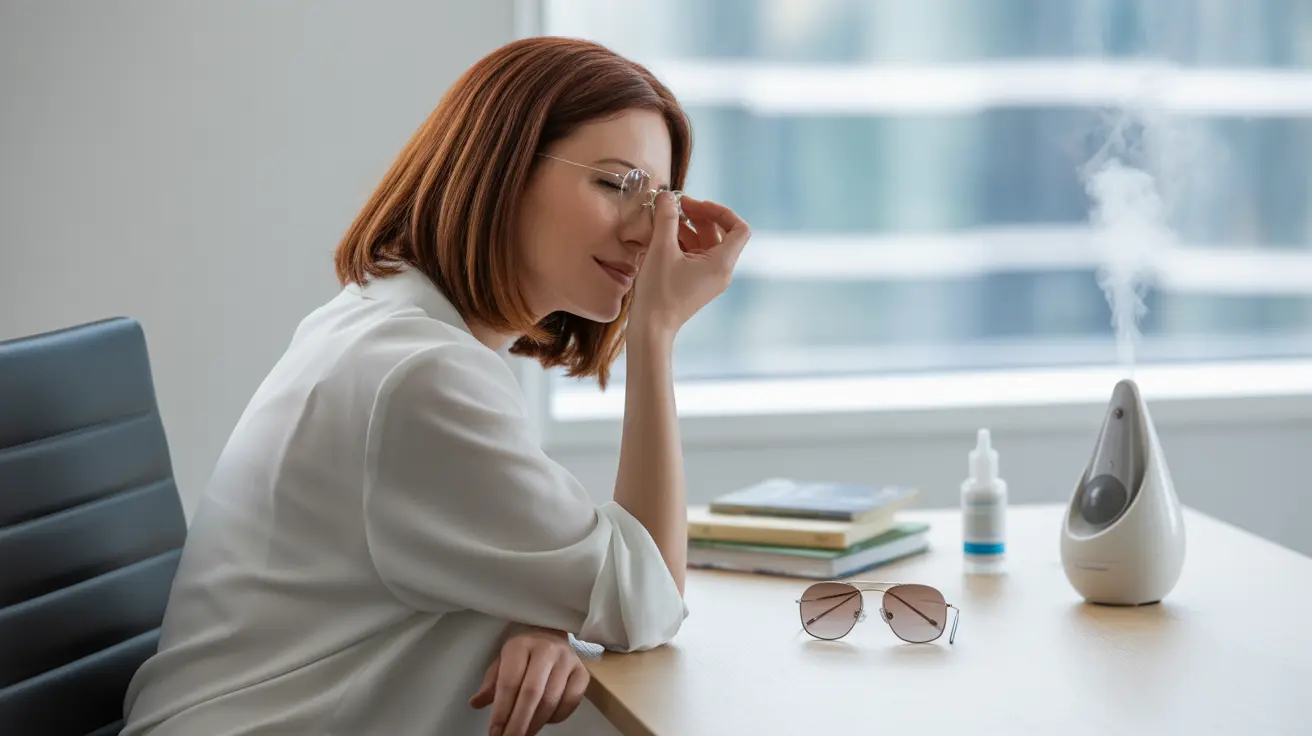Dry eyes can significantly impact your daily comfort and quality of life, but with the right preventive measures, you can maintain healthy, well-lubricated eyes. Understanding how to prevent dry eyes is crucial, especially in today's digital age where eye strain and dryness have become increasingly common concerns.
This comprehensive guide explores evidence-based strategies to prevent dry eye symptoms, from simple lifestyle adjustments to proven medical interventions. Whether you're dealing with environmental factors, extended screen time, or other causes, you'll find practical solutions to keep your eyes comfortable and healthy.
Environmental Protection Strategies
The environment plays a crucial role in eye health, and protecting your eyes from harsh conditions is essential for preventing dryness. Consider these effective measures:
- Use a humidifier in dry indoor spaces
- Wear wraparound sunglasses when outdoors
- Position yourself away from direct air vents
- Install an air purifier to reduce irritants
- Avoid smoky environments
These protective measures create a more eye-friendly environment and significantly reduce the risk of developing dry eyes.
Proper Use of Artificial Tears
Artificial tears are a cornerstone in preventing dry eyes, but using them correctly is crucial for maximum benefit. Choose preservative-free options for frequent use, and consider these guidelines:
- Apply drops before engaging in activities that typically cause eye strain
- Use them proactively rather than waiting for symptoms
- Select the right formulation based on your specific needs
- Store properly and replace as recommended
Nutrition and Supplement Approach
A well-balanced diet rich in specific nutrients can help maintain optimal eye health and prevent dryness. Key nutritional strategies include:
- Consuming omega-3 rich foods (fatty fish, flaxseeds, chia seeds)
- Including plenty of vitamin A-rich foods
- Staying well-hydrated throughout the day
- Consider supplements under medical guidance
Digital Device Management
In our screen-centered world, protecting your eyes during digital device use is crucial. Implement these preventive measures:
- Follow the 20-20-20 rule: Every 20 minutes, look at something 20 feet away for 20 seconds
- Position screens slightly below eye level
- Maintain proper screen distance (arm's length)
- Use proper lighting to reduce glare
- Enable blue light filters on devices
Professional Care and Medical Interventions
Regular eye check-ups and professional care are essential components of dry eye prevention. Know when to seek medical attention:
- Schedule regular eye examinations
- Discuss medication side effects with your doctor
- Consider prescription treatments when necessary
- Address underlying health conditions that may contribute to dry eyes
Frequently Asked Questions
What are the most effective ways to prevent dry eyes caused by environmental factors?
The most effective environmental prevention strategies include using a humidifier, wearing protective eyewear outdoors, avoiding direct air currents, and maintaining optimal indoor humidity levels between 30-50%. Additionally, staying away from smoke and other irritants can significantly reduce dry eye symptoms.
How often should I use artificial tears to help prevent dry eyes?
For prevention, use artificial tears 2-4 times daily, or as recommended by your eye care professional. If you're engaging in activities that typically cause eye strain, apply drops beforehand. For frequent use (more than 4 times daily), choose preservative-free formulations to avoid irritation.
Can omega-3 supplements help reduce symptoms of dry eyes and how should they be taken?
Yes, omega-3 supplements can help reduce dry eye symptoms. A typical recommended dose is 1000-2000mg daily, taken with meals to improve absorption. However, consult with your healthcare provider before starting any supplement regimen, as individual needs may vary.
What lifestyle changes can I make to reduce the risk of developing dry eyes from screen time?
Key lifestyle changes include implementing the 20-20-20 rule, maintaining proper screen positioning, ensuring adequate room lighting, using blue light filters, and taking regular breaks. Additionally, keeping your eyes level with or slightly above the screen can help reduce strain.
When should I see a doctor for persistent dry eyes and what medical treatments are available?
Seek medical attention if dry eye symptoms persist for more than two weeks, cause significant discomfort, or affect your vision. Available medical treatments include prescription eye drops, punctal plugs, anti-inflammatory medications, and specialized procedures to address underlying causes of dry eyes.




